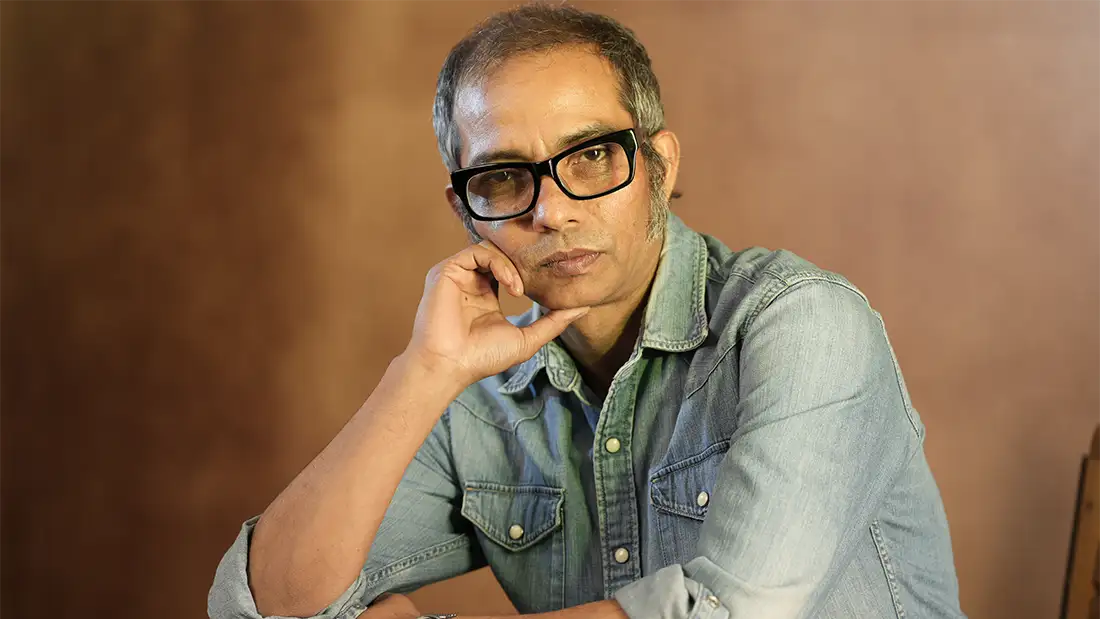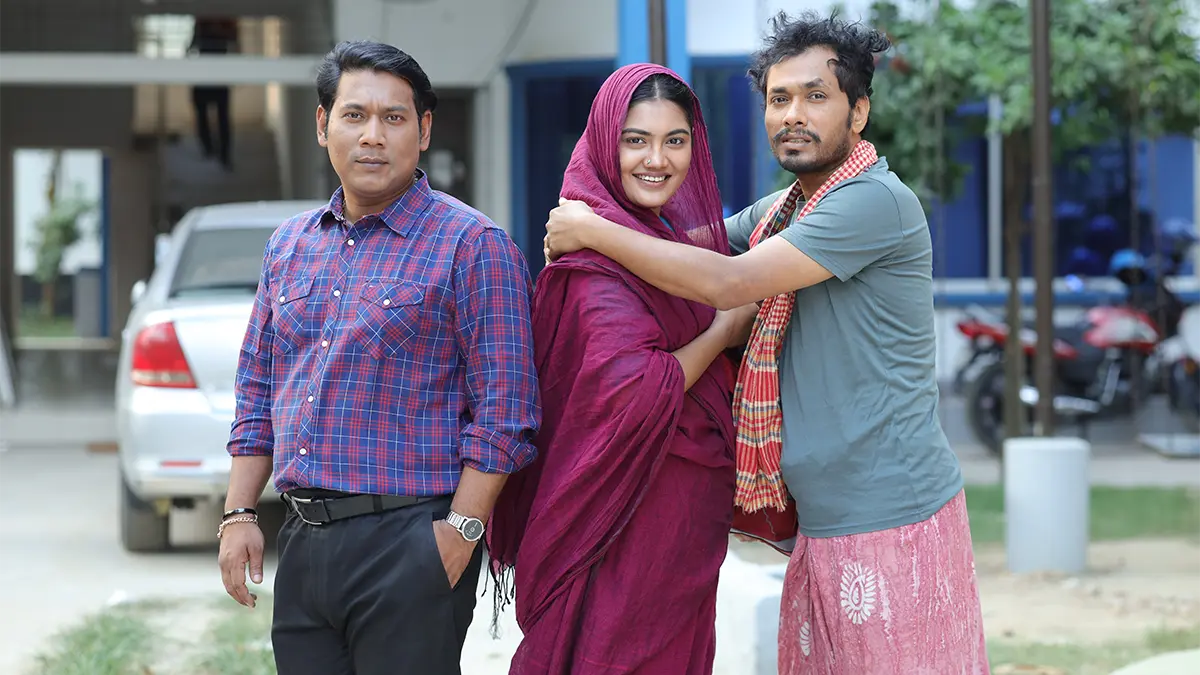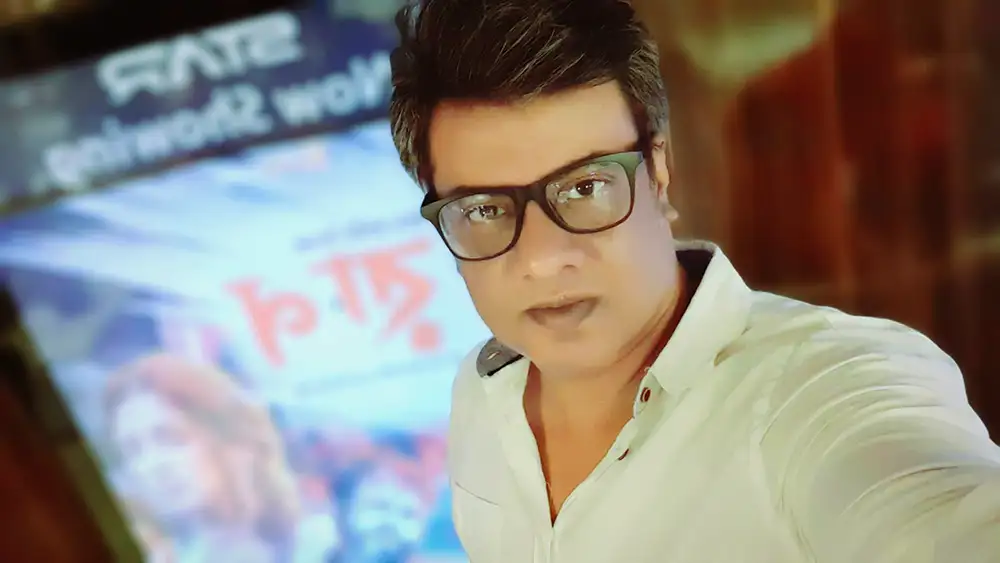
Liton Kar, quickly became a well-known figure in show business after working in a variety of capacities. Following the film "Dubshatar," directed by Nurul Alam Atique, he worked as a production designer in the film "Jaago," directed by Khijir Hayat Khan. Following that, he worked as a production designer in a number of advertisements. Liton Kar recently worked on the film "Laal Moroger Jhuti" as an assistant director and production designer. Furthermore, by directing the short film 'I.C.U.,' he is receiving praise from both audiences and reviewers. He was recently questioned by DhallywoodLife.com.
How did you get your start in the media?
Liton Kar: Started media career presumably as the Art Director and Assistant Director of a non-fiction TV show named "CHONDROBINDU". Nurul Alam Atiq directed the show and was aired on Channel I.
Tell us about your academic and professional experiences.
Liton Kar: My birthplace is Chittagong. After graduating from Chittagong Government College of Fine Arts with a "BFA" in Drawing and Paintings, I was accepted into Chittagong University's Fine Arts Department for an MA in the same field. I had been immersed in theatrical practise with Tirak Natyadal for approximately three or four years at the time. I was involved in cultural and political activities ranging from arranging Pahela Boishakh at DC Hill in Chittagong to the inaugural Vijay Mela.
What was your first paying job?
Liton Kar: My first project was quite intriguing since I had just earned my fine arts degree and Dainik Purbokone was a well-known newspaper in Chittagong at the time. Dr. Ramiz Bhai, the editor of that newspaper, suggested that I draw and write a four-column, eight-inch feature called 'Chattogramer Oitijjo' on Chittagong's history and legacy, complete with pen sketches of Chittagong's historical sites. Dainik Purbokone compensated me with 200 taka for each episode. This effort, which included around 25 to 30 pen sketches, was warmly appreciated, and a book titled 'Chattogramer Oitijjo' was released with the writings and drawings.

Who was your first buddy in the film industry? Who and how have they affected your life?
Liton Kar: When I first moved to Dhaka, none of my friends worked in the film industry, so I can't call them friends of movies, but rather friends of the media. Wahid Tareq was a little younger than me, but we were involved in a variety of Chittagong cultural and political events. I first met Amitabh Reza in Dhaka through him, their daily participation with an advertising work named Baji Quddus, spent the first six months in Amitabh's Dhanmondi office at Dolphin Alley, simply speaking and talking, that's how I met Giasuddin Selim, Nurul Alam Atiq, and afterwards Jaya Ahsan and others. Jaya Ahsan, Nurul Alam Atiq, and Sushma Sarker were the most supportive of my audio-visual efforts.
What roles have you played in films, and how and with whom have you collaborated?
Liton Kar: First, I worked on the film "Dubshatar" with Nurul Alam Atiq as production designer, art director, and assistant director. "Dubshatar," his debut film, starred Jaya Ahsan as the lead.
Following "Dubshatar," I worked on Khizir Hayat Khan's film "Jaago," where I was the production designer. In addition, I've worked as a production designer on a few advertisements. Wahid Tarek and Golam Haider Kislu oversee these advertising for Banglalink, Warid Telecom, UNICEF, and Unilever. I recently worked as an associate director and production designer on "Laal Moroger Jhuti," a government-funded film. This is the liberation war film of Nurul Alam Atiq.
Aside from that, I developed the entire campaign, including typography and six television fiction posters named "Stories of Peace in Unstable Times," with Amitabh Reza and Mejbaur Rahman Sumon. Later OTT, Amitabh Raza's poster design for "Dhaka Metro", Nurul Alam Atiq's poster design for "Manusher Bagan", Mustofa Sarwar Farooki's poster design for "Saturday Afternoon", poster design for "Laal Moroger Jhuti" and poster design for Shabnam Ferdousi's "Ajob Karkhana".
Tell me about the film you directed.
Liton Kar: ICU (I SEE YOU), my debut film, opened in Bangladesh a few days ago, and many of the main players in the Bangladeshi film industry were there and applauded the film, particularly Jaya Ahsan, a prominent Bengali actress. Mamunur Rasheed, Actor, Playwright, and Director, Gazi Rakayet, Actress Afsana Mimi, Filmmaker Ghiyas Uddin Salim, Actor Shahiduzzaman Salim, Actor and Producer Iresh Zaker, BangBD Head Musfiqur Rahman Manju, Director Animesh Ais, Actress Many with Ashna Habib Bhavana.

I tried to depict the claustrophobic sense of common people being dissolved by the aggressive control of great superpowers in the very ancient and unaltered addiction of antagonistic skilled politics in the hemisphere named Earth in the film ICU (I SEE YOU). I chose the term "ICU" to refer to both the suffering of the opressed throughout the world and the horrors in their minds. The picture is "silent," which is one of its major merits. Without saying anything, I believe a thousand words can be said.
ICU (I SEE YOU) has already earned awards for "Best Debut Director" at the Druk International Film Festival in Bhutan and "A Best Silent Film" at the Walled Film Carnival Singapore, and will be touring the world throughout 2022. Lift-off UK, Lift-off Sydney, Italy, and Turkey have also been screened and applauded at international film festivals in over 13 countries. ICU (I SEE YOU) will be my life's particular inspiration.





